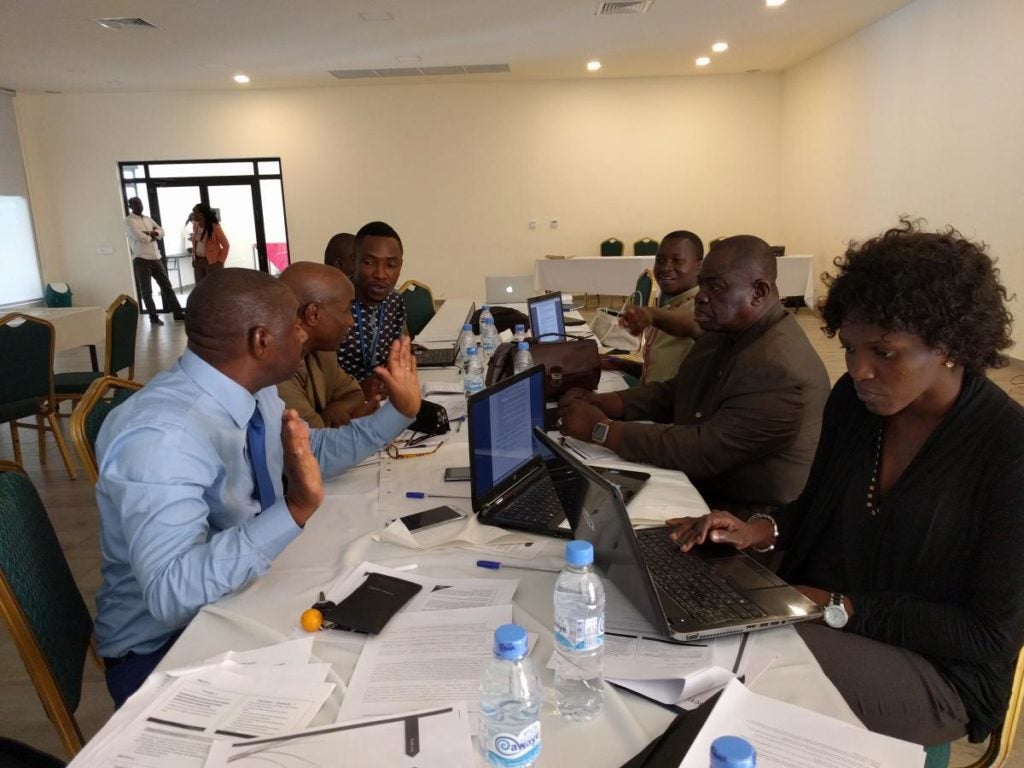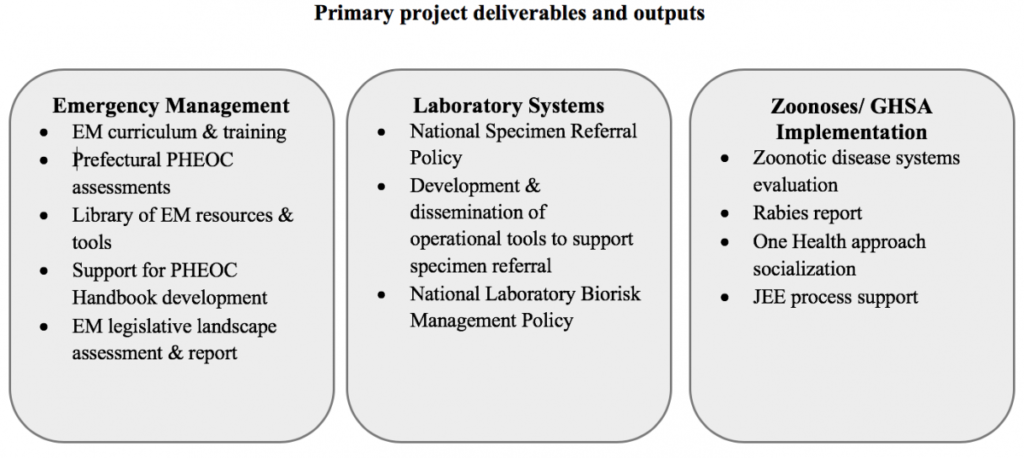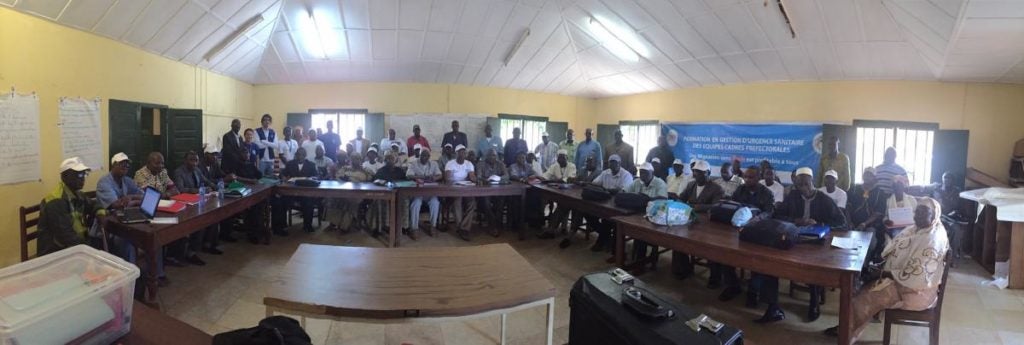Global Health Security Engagement in Guinea
Supporting emergency management capacity building in Guinea during and following the 2014 Ebola outbreak
Project Report
Center for Global Health Science & Security. Global Health Security Engagement in Guinea: 2015-2019. Georgetown University, 2019.
Peer-reviewed Publications
Standley CJ, Carlin EP, Sorrell EM, et al. Assessing health systems in Guinea for prevention and control of priority zoonotic diseases: A One Health approach. One Health, 2019, 7.
Standley CJ, Muhayangabo R, Bah MS, et al. Creating a national specimen referral system in Guinea: Lessons from initial development and implementation. Frontiers in Public Health, 2019, 7:83.
Project Overview:
In February 2015, the George Washington University Global Health Security Program was awarded a five-year cooperative agreement by the U.S. Centers for Disease Control and Prevention (CDC). In June 2016, the research team transitioned to Georgetown University, to establish the Center for Global Health Science and Security (CGHSS), and continued the cooperative agreement at Georgetown.
In collaboration with CDC staff in both Atlanta and Conakry, we developed a series of activities that were initially related to supporting the Ebola response and subsequently shifted into recovery and rebuilding programs as the outbreak waned. Our initial efforts, starting in early 2015, focused on supporting the development of emergency management capabilities, including support to the Public Health Agency of Canada (PHAC) and CDC with a focus on capabilities and needs assessments at prefecture-level emergency operations centers.

We expanded our engagement to focus on longer-term emergency management capacity building, activities related to One Health systems strengthening, and support for specimen referral and transport, within the context of strengthening the national laboratory network.
As the transition from response to recovery continued, our activities shifted more directly on capacity strengthening and technical assistance for the identification of priorities and gaps for future investment. This included technical assistance within the context of emergency management (EM); support to the Ministry of Health (MOH) on laboratory-related policy development; finalization of recommendations for multisectoral systems strengthening with respect to prevention and control of zoonotic diseases; and overall technical support for the implementation of the International Health Regulations (IHR 2005) and the Global Health Security Agenda (GHSA).
The partnership model developed by CDC between GU, our other partners, and the Guinean MoH demonstrated that an effective collaborative culture can have a transformative impact on the host country’s national systems. Our experience in Guinea highlighted the strong appreciation of the host government for proactive, transparent collaboration and information-sharing among partners, as it facilitated their own efforts to manage international assistance, ensured close alignment with national priorities, reduced duplication of effort, and maximized chances of successful capacity building outcomes.

Project Team
Rebecca Katz
Claire Standley
Erin Sorrell
Julie Fischer
Aurelia Attal-Juncqua
Laëtitia Diatezua
Clément Jaidzeka
Nina Kanakarajevelu
Project Collaborators & Consultants
Binta Balde
Alpha Mahmoud Barry
Ellen Carlin
Djibril Cherif
Gian Luca Burci
Djibril Sangare
Anna Tordjmann

Supported Provided By:
The U.S. Centers for Disease Control and Prevention (CDC), through Cooperative Agreement number NU19GH001626. The contents of this webpage are solely the responsibility of the authors and do not necessarily represent official views of the CDC or the Department of Health and Human Services.
Acknowledgments
We are extremely grateful for the assistance, support, and cooperation afforded to us by many partners over the four years of this project, including:
- The Ministry of Health (MOH): Agence Nationale de Sécurité Sanitaire (ANSS), Institut National de Santé Publique (INSP), Direction Nationale de Laboratoire (DNL), Inspecteur Général, and MOH legal counsels
- The Ministry of Livestock (MOL)
- The Ministry of Environment, Ministry of Defense & other governmental agencies implicated in emergency response
- CDC Cooperative Agreement partners: International Medical Corps (IMC), International Organization for Migration (IOM), RTI International
- Other Non-Governmental Organizations (NGO), international organizations and U.S Government collaborators, including: the World Health Organisation (WHO), United Nations International Children’s Emergency Fund (UNICEF), Guinea Red Cross, World Organization for Animal Health (OIE), the Food and Agriculture Organization (FAO), DAI Global Health, AFENET, United States Agency for International Development (USAID), Defense Threat Reduction Agency (DTRA), Department of State Biological Engagement Program (BEP), Fondation Mérieux, Institut Pasteur-Guinée, Global Alliance for Rabies Control, Association of Public Health Laboratories (APHL).
Finally, none of this work could have been achieved without the tireless efforts of the CDC Guinea staff.



